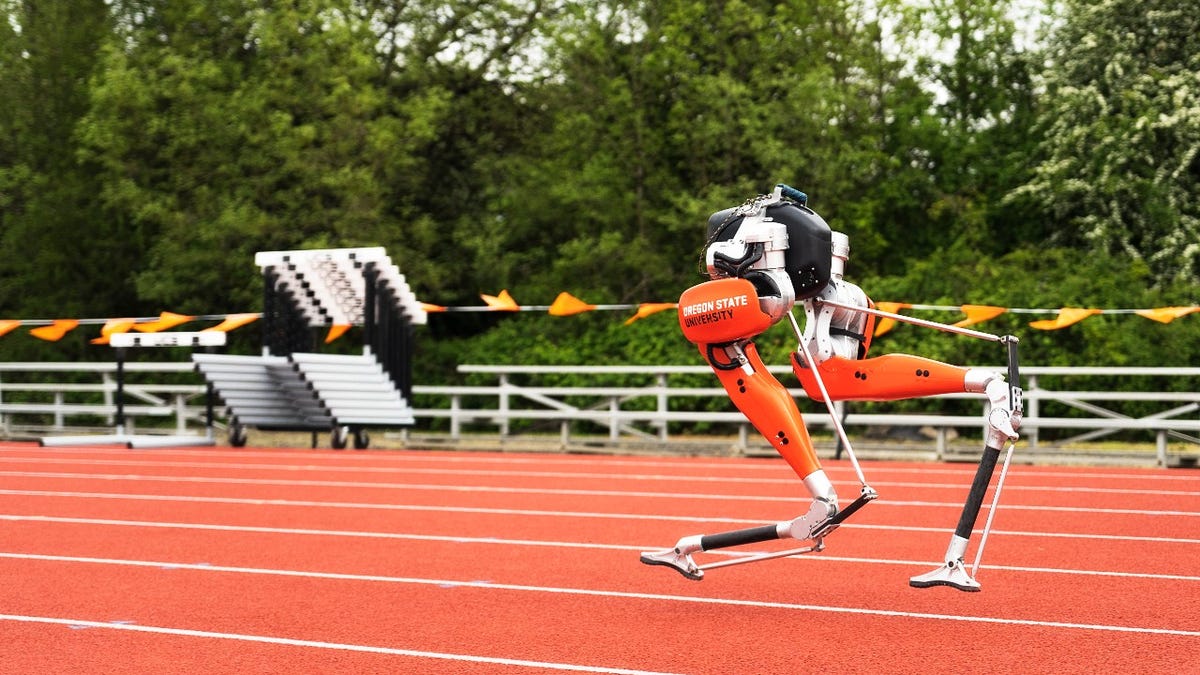You Might Be Able to Outrun the World's Fastest Two-Legged Robot... for Now
Cassie the robot isn't ready for the Olympics just yet, but it might outpace you very soon.

Cassie the robot sets 100-meter record on May 11, 2022, in Corvallis, Oregon.
If you haven't sprinted the length of your local football field lately, you might want to go time yourself on the 100 meters to see how you measure up to the current speeds of bipedal robots that may one day become the ancestors of our android overlords.
Cassie, a two-legged robot developed at Oregon State University, has established the Guinness World Record for the fastest 100 meters "run" by a bipedal robot, clocking the standard distance on a track in 24.73 seconds. That works out to about four meters per second, or almost nine miles per hour.
For comparison, Usain Bolt holds the world record for a human running 100 meters: a blazing 9.58 seconds. Florence Griffith-Joyner's women's world record is less than a second behind, at 10.49 seconds.
So at our fastest, humans can run about 23 miles per hour (37 kilometers per hour) for 10 seconds. The average jogging speed is 20 percent to 25 percent of that top speed, or four to six miles per hour (six to 10 kilometers per hour), so if you can run just a little bit faster than a jog, you should be able to outpace Cassie's current iteration.
But Cassie has already been working on its endurance-running and other capabilities.
"We have been building the understanding to achieve this world record over the past several years, running a 5K and also going up and down stairs," OSU graduate student Devin Crowley, who led the Guinness effort, said in a statement.
The robot covered five kilometers in 2021 in just over 53 minutes. Again, this wouldn't be a very competitive time by human standards, but the fact that it was able to do so on a single battery charge is notable.
In fact, it turns out that the running is the easy bit. What was harder for the team to figure out was getting Cassie to sprint from a standing position and then stop and return to that position.
"Starting and stopping in a standing position are more difficult than the running part, similar to how taking off and landing are harder than actually flying a plane," said OSU artificial intelligence professor Alan Fern.
Cassie was developed at OSU with a grant from the Defense Advanced Research Projects Agency, or DARPA. OSU spinout company Agility Robotics produced the robot, which uses a novel control system informed by both physics and artificial intelligence.
"This 100-meter result was achieved by a deep collaboration between mechanical hardware design and advanced artificial intelligence for the control of that hardware," explains Fern. "I think progress is going to accelerate from here."
Acceleration is something humans might also want to get more familiar with, as we have to run ever faster to escape future android salesbots... or worse.

